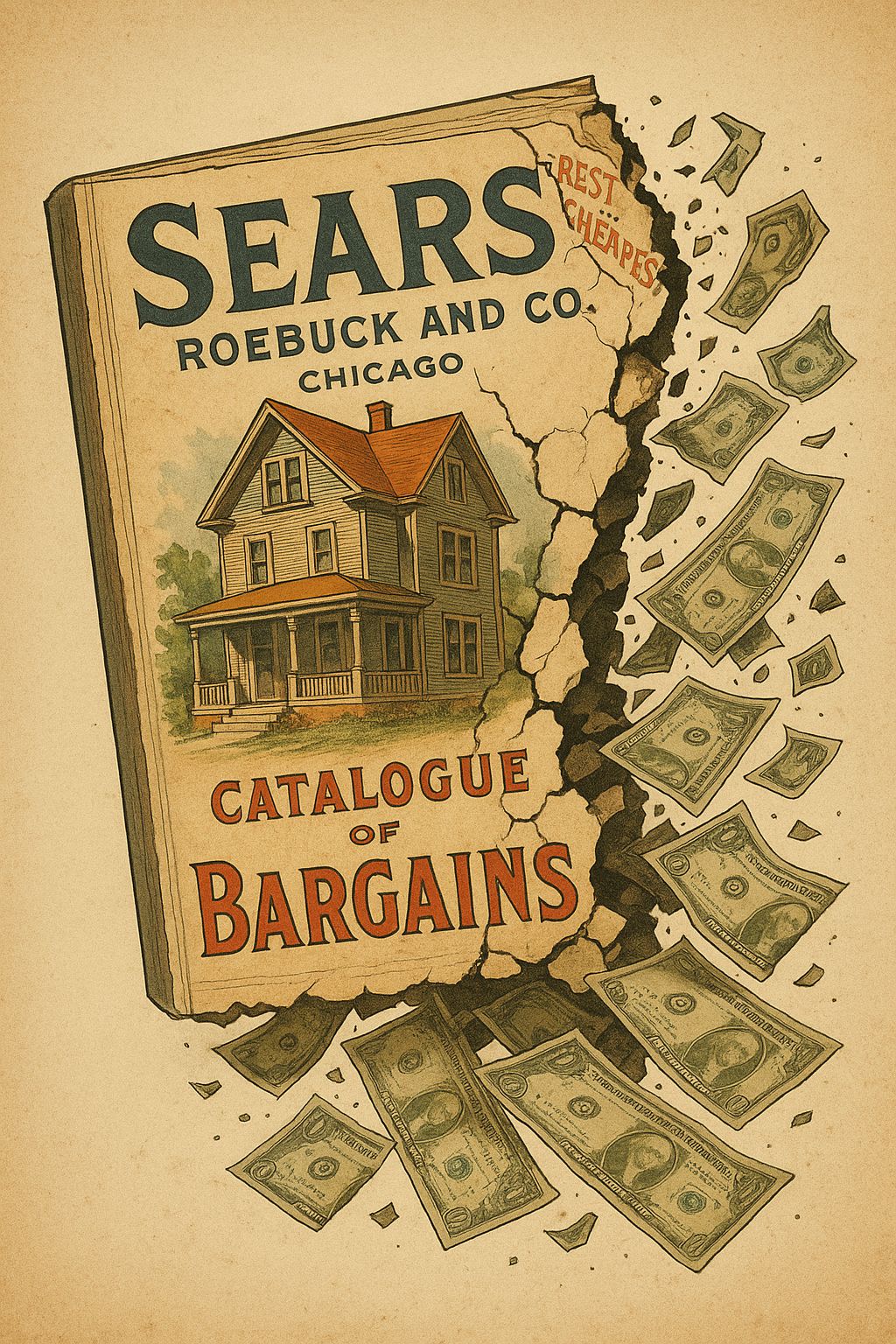The other day I found myself thinking about what happened to Sears. After some research, I found they were the victim to something I have read about several times over the years but never really looked into in detail until now. Sears wasn’t just a casualty of changing times. It was gutted.

For most of the 20th century, Sears was an American titan. Founded in 1892 by Richard Sears and Alvah Roebuck, Sears, Roebuck and Co. was the great American story, steadily growing from a simple mail-order catalog company to the largest retailer in the 1980s. It sold everything from clothes to homes. It innovated in logistics, pioneered catalog sales, and practically invented the modern department store. But today, it’s a shell — bankrupt, stores shuttered, brand diluted into irrelevance.
What killed it wasn’t Amazon. It wasn’t e-commerce. It wasn’t Millennials. It was vulture capitalism.
Eddie Lampert, a hedge fund billionaire, took over Sears in the early 2000s. Rather than reinvest in stores or infrastructure, Lampert treated the company like a piggy bank. He spun off valuable divisions — Craftsman, Lands’ End. He sold off real estate, transferring assets into a separate entity (Seritage) that Sears then had to lease from. He pitted departments against each other internally, under the delusional idea that it would spur efficiency. What it really did was destroy coöperation and bleed the company dry.
What Lampert did wasn't an accident. It wasn't mismanagement. It wasn't incompetence. Destroying Sears was the plan.
All of this is part of a larger trend called financialization, where leadership shifts away from product-oriented strategy and toward asset extraction and short-term gains. Under financialization, companies are no longer built to last. They’re built to pump.
This is not a conspiracy theory. It’s a business model. Buy a company. Sell its parts. Load it with debt. Extract fees. Pay out dividends to investors. Declare bankruptcy. Move on. You can find insider after insider spilling the beans — on Reddit, in interviews, in exposés. Writers like Naomi Klein have documented this extractive playbook for years.
It’s happened to some of the most publicly beloved companies in America like Toys “R” Us, RadioShack, Payless, and countless others. You’ve seen it happen in real time even if you didn’t have a name for it. This is what private equity often does: take a healthy, functioning company and hollow it out for cash. It’s legal. It’s celebrated on Wall Street. And it’s utterly destructive to workers, communities, and long-term economic health.
We used to call these people corporate raiders. Now they run the show.
Real reform would require a regulatory spine we haven’t seen in decades — limits on leveraged buyouts, restrictions on stock buybacks, and a serious clawback regime when executives walk away rich from wreckage they caused.
There have been efforts. There have been multiple bills and hearings targeting private equity abuses. One in particular, the Stop Wall Street Looting Act (SWLA) was introduced by Senator Elizabeth Warren and others. It would:
- Hold PE firms responsible for the debts of companies they acquire.
- Limit dividend payments and asset stripping post-acquisition.
- Prioritize pensions and workers in bankruptcies.
It has been introduced multiple times, but hasn’t passed due to intense lobbying. I’ll give you three guesses who’s behind the lobbying — and the first two don’t count. Wall Street has a lot of money and too many in Congress are easily bought.
Under Lina Khan (FTC) and Jonathan Kanter (DOJ Antitrust Division), there’s been increased scrutiny of mergers and anti-competitive behavior, especially by private equity, but enforcement is slow and overwhelmed.
There are other efforts to combat this vulture capitalism, but basically they are outgunned and underfunded. It's hard for anyone to match the money Wall Street can throw around. Without major public outrage, real systemic change is unlikely anytime soon.
Until we get that change, companies like Sears will continue to fall, and the buzzards will keep circling.
